SUMMARY
This is AI generated summarization, which may have errors. For context, always refer to the full article.
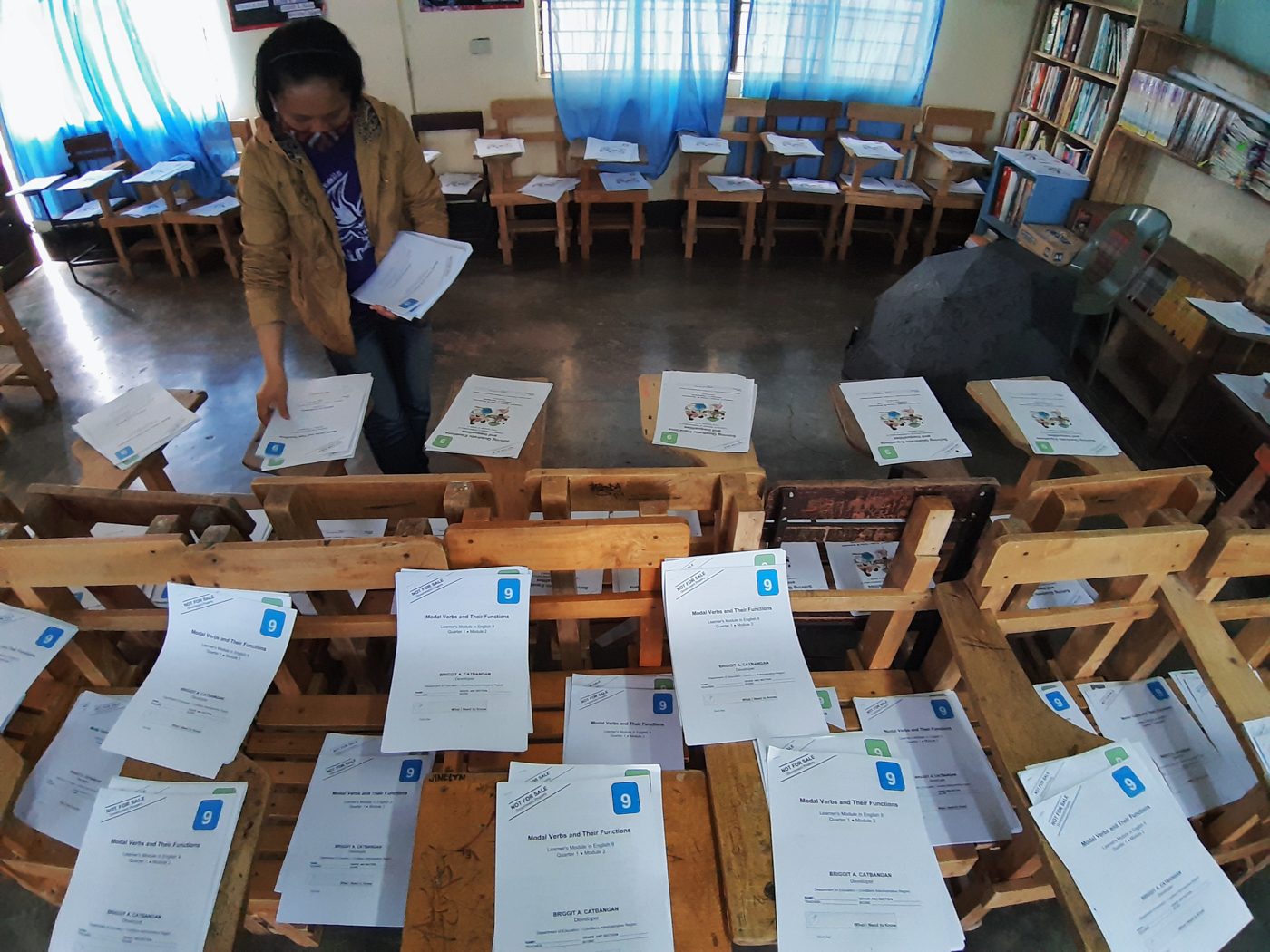
Some senators are urging the Department of Education (DepEd) to consider resuming face-to-face classes, as they expressed apprehensions about whether students are able to retain much from the current modes of remote learning, especially those unable to take online classes.
In a hearing of the Senate committee on basic education, arts, and culture on Friday, November 27, panel head Senator Sherwin Gatchalian said that the country’s “dramatically improved” COVID-19 situation may already allow for the reopening of schoolhouses and campuses, especially in areas with little or no COVID-19 cases.
“My own analysis and monitoring of the COVID situation is we’ve done tremendous strides and improvement, and – I can claim – even success in managing COVID, if you compare ourselves to some European countries,” Gatchalian said.
He noted that the daily average number of new reported COVID-19 cases in the country has gone below 1,500.
“Let me just express my opinion that the situation has changed, and I think we can already look at executing some form of localized limited face-to-face classes especially in areas where there is no COVID in their municipality,” Gatchalian added.
Even cockpits have reopened
In the hearing, Senator Imee Marcos said that the Philippines is the “penultimate country in the world” still keeping its schools shuttered, “despite consistent evidence that face-to-face classes are not super spreaders” of the coronavirus disease.
“I will confess my bafflement and fury several days ago when the cockpits were officially opened and allowed to operate. Has gambling now become an ‘essential activity’ to Filipinos and education a frivolous luxury? Let us open the schools wherever we can and keep them accessible for as long as possible,” Marcos said.
Instead of keeping schools closed, the government should focus on protecting teachers, students, and families from the virus “outside the classroom,” she added.
The closure of schools and the shift to distance learning have been “too overwhelming to bear” for children and the community, Marcos said. Teachers have difficulty instructing students through “erratic remote learning and substandard inadequate modules.” Meanwhile, parents are forced to juggle instructing their children with their jobs and housework.
In many places, such as in the Bangsamoro Autonomous Region in Muslim Mindanao (BARMM), parents who barely had any schooling are downright unable to help their children with schoolwork, Gatchalian pointed out. With a 29% decrease in enrollments, BARMM appears by far to be the most adversely affected region in terms of education.
This is even if 30% of BARMM municipalities have not had a single case of COVID-19, Gatchalian added.
Are students actually learning?
Senator Nancy Binay told the panel she worries that public school students will fall even farther behind their peers in private schools because of the huge disparity in online access to teachers and learning materials. Private school students typically come from more well-to-do families, and are able to participate in synchronous online classes that allow for real-time interaction with teachers and classmates.
Meanwhile, public school students are mostly left with printed modules. Even with televised instructional materials from the DepEd, they still have hardly any interaction with their teachers or classmates.
More than 25 million students have enrolled in the current semester – 90% of the previous school year’s figure. The government had feared worse, given the constraints and difficulties caused by the pandemic.
“Ang daming naka-enroll nga (Many are indeed enrolled), but the quality of learning might not be that good,” Binay told DepEd Undersecretary Nepomuceno Malaluan during the hearing.
The danger, Binay said, is that students will end up “just going through the motions of going to school” without actually learning much.
Malaluan admitted that in the current setup, public school students have very limited face-to-face online interaction with their teachers. There have also been reports of students submitting their modules without having accomplished them fully. Not all students are able to study well by themselves, and not all parents are able to assist their children.
DepEd: It’s up to the President
With eased quarantine measures in many parts of the country, children are now able to travel to places like Baguio or Boracay with their families, said Binay. Gatchalian noted that massage parlors have been allowed to operate at 75% capacity. Shouldn’t physical classes in schools be allowed to resume, too, if it would mean students can learn more effectively?
If health safety protocols – wearing face masks, frequent hand washing, ventilation, physical distancing, priority testing and tracing – are strictly followed, then viral transmission in schools can be minimized, Marcos said.
“Schools merely reflect the infection levels of their communities,” she added.
The DepEd recognizes that increased interaction between teachers and students would be a big help, if not virtually, then with “occasional or intermittent face-to-face interactions,” Malaluan said.
A decision to allow this, however, rests with President Rodrigo Duterte, who earlier ruled out physical classes for the rest of 2020 as a precaution against COVID-19.
Malaluan assured the 3 senators that their comments will form part of Education Secretary Leonor Briones’ next set of considerations and recommendations to be presented to Duterte. – Rappler.com
Add a comment
How does this make you feel?


![[Time Trowel] Evolution and the sneakiness of COVID](https://www.rappler.com/tachyon/2024/02/tl-evolution-covid.jpg?resize=257%2C257&crop=455px%2C0px%2C1080px%2C1080px)


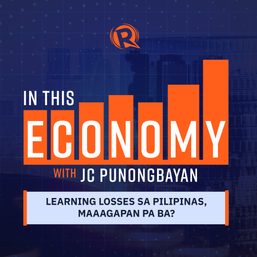
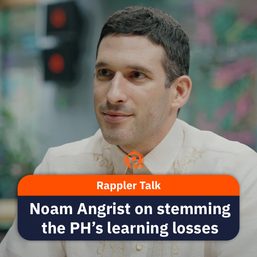
![[EDITORIAL] Ano sana ang takeaway ni Sara Duterte sa firesale ng mga laptops?](https://www.rappler.com/tachyon/2023/05/animated-DEPED-laptop-fiasco-carousel.jpg?resize=257%2C257&crop_strategy=attention)
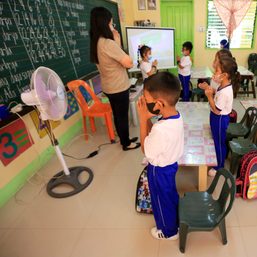
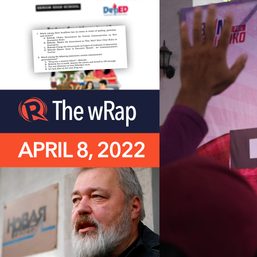
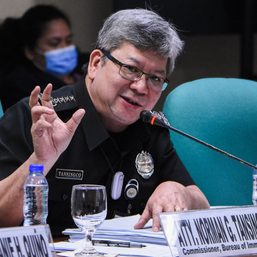

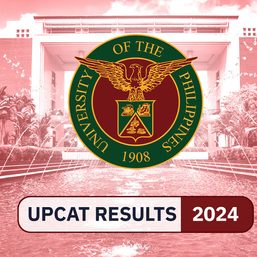
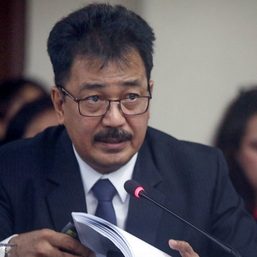
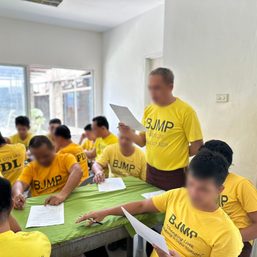
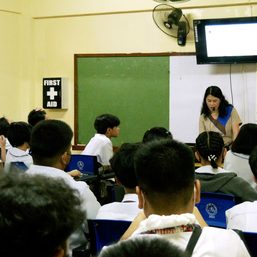
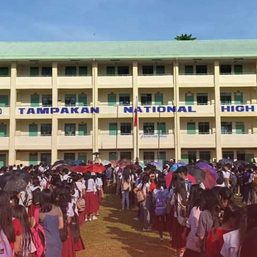
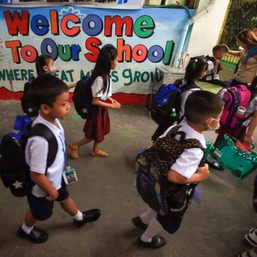
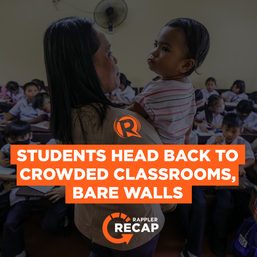
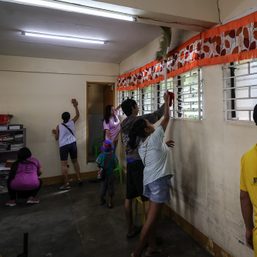

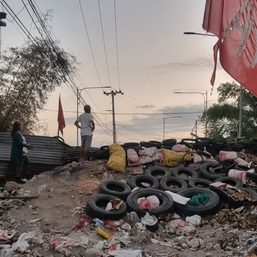
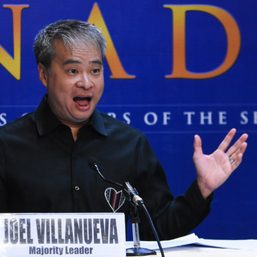
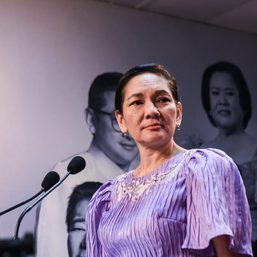
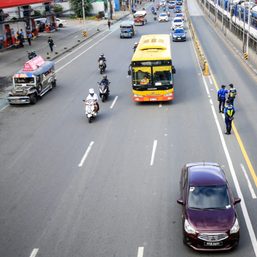
There are no comments yet. Add your comment to start the conversation.